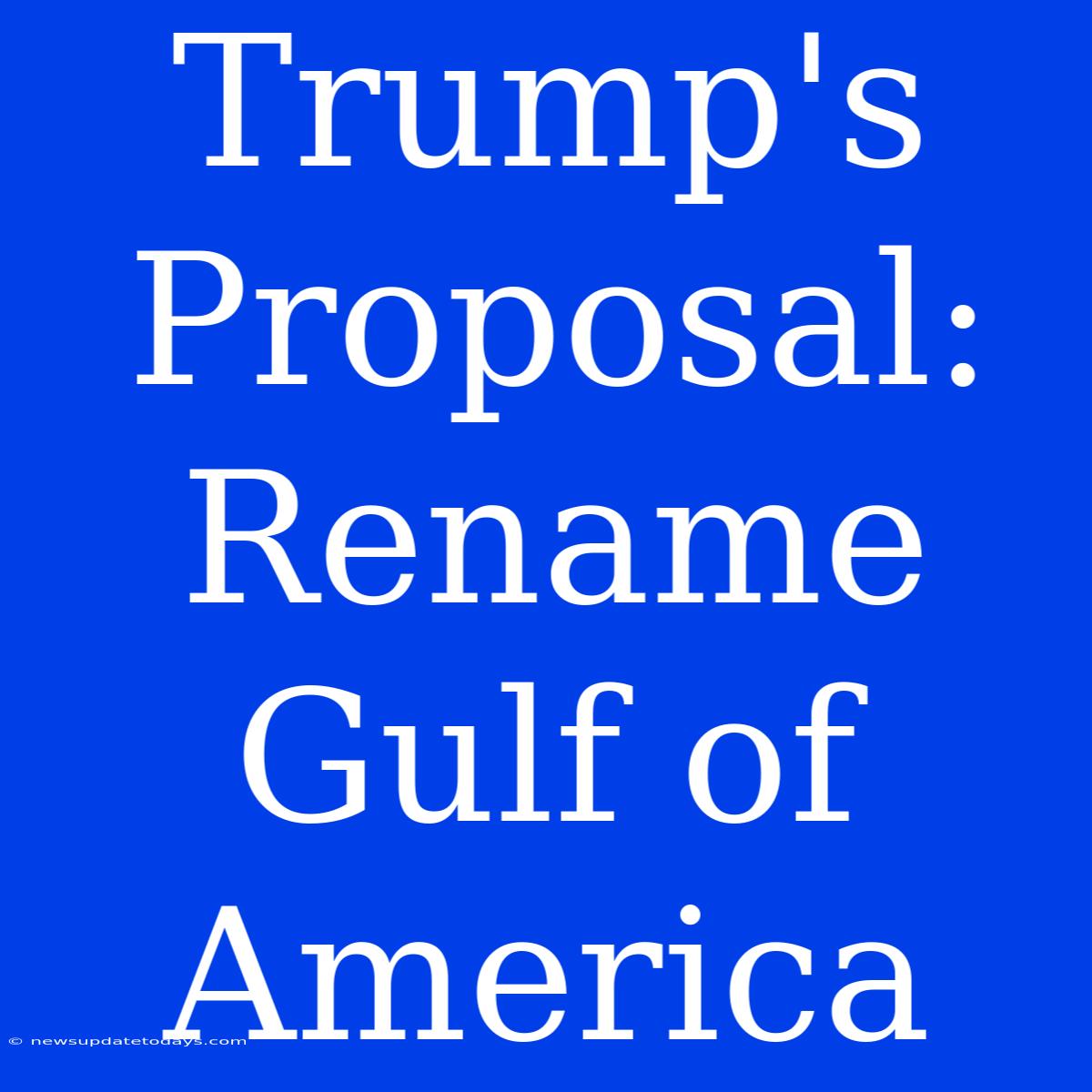Trump's Proposal: Rebranding the Gulf of Mexico – A Controversial Idea
Donald Trump's suggestion to rename the Gulf of Mexico the "Gulf of America" sparked significant debate and controversy. While seemingly a minor change, the proposal reveals deeper issues surrounding national identity, historical context, and international relations. This article delves into the proposal, examining its potential implications and the reasons behind the opposition it faced.
The Proposal and its Rationale
During his presidency, Donald Trump publicly floated the idea of renaming the Gulf of Mexico, a body of water bordering several countries including Mexico, Cuba, and the United States. The rationale behind the proposal, as expressed by Trump and his supporters, centered on asserting American dominance and national pride. The argument was that the name "Gulf of Mexico" underrepresented the significant American coastline bordering the gulf and its economic importance to the United States.
Opposition and Counterarguments
The proposal, however, faced immediate and strong opposition from various quarters. The primary criticism highlighted the historical and geographical inaccuracies inherent in the name change. The Gulf of Mexico has been known by its current name for centuries, reflecting its geographical location and its shared border with several nations. A renaming would disregard this established nomenclature and historical usage, potentially causing confusion in maps, nautical charts, and scientific literature.
Furthermore, the proposal was seen as an affront to neighboring countries. The unilateral decision to rename a shared geographical feature without consultation with affected nations raised concerns about international relations and respect for sovereignty. Critics argued that the proposed name change reflected a disregard for the contributions and historical ties of other nations with the Gulf of Mexico.
Implications and Long-Term Effects
Beyond the immediate controversy, the proposed name change raised questions about broader issues. The debate highlighted the complexities of national identity and the potential for seemingly simple actions to trigger significant diplomatic and cultural ramifications.
The renaming proposal underscores the importance of careful consideration when altering established geographical names. Such decisions, especially those involving shared resources and borders, require international collaboration and a respectful understanding of historical context. Otherwise, attempts at national assertion may inadvertently damage international relations and cultural ties.
Conclusion: A Controversial Gesture
Trump's proposal to rename the Gulf of Mexico ultimately failed to gain traction. While the idea was presented as a symbolic assertion of American national pride, it was widely perceived as an insensitive and impractical move with negative implications for international diplomacy and respect for established norms. The controversy underscores the importance of careful consideration and diplomatic engagement when dealing with matters of shared geographical features and their historical significance.

